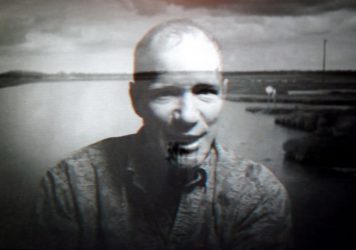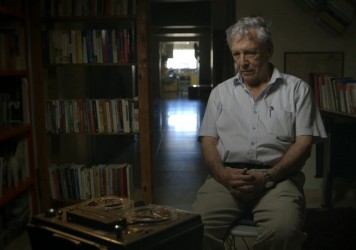Director Grant Gee’s cinematic love letter to Istanbul doubles as a profoundly moving study of memory.
There’s a swooning romantic melodrama reminiscent of ’40s Hollywood nestled at the core of this atmospheric portrait of contemporary Istanbul from director Grant Gee. Here, he collaborates with Turkey’s Nobel-prize-winning novelist Orhan Pamuk, adopting his 2008 novel ‘The Museum of Innocence’ as a through-line for a film weaving together music, photography, TV chat show appearances and haunting Steadicam shots of the city at night.
The museum itself is an actual place that can be found on a more rarified version of the local tourist trail, and this grand undertaking acts as a real- world accompaniment to the book’s sweeping love narrative. The story offers a Turkish riff on ‘The Great Gatsby’, with the debonair Kemal falling desperately for Füsun, his coquettish cousin from lesser stock. Following her demise in a car accident, he collects every object associated with her in any vague or tangential way, and brings them together to build a shrine to a relationship that never was, and a person he never got to know with an intimacy.
Whereas this tragic tale is an attempt to show the complexity of memory and the physical imprint human beings leave on the world, Gee too tries to explore how the city itself is a repository of memories. Pamuk talks about how certain buildings can be associated with pleasant views, and when a new building is erected, obscuring that view, the old buildings remain as monuments to that lost beauty.
There are times where the film resembles a museum-style multimedia exhibit, especially the shots of photographs projected over pages of text. But it’s quite miraculous how the film draws you in to its subtle intrigue, and develops in surprising ways. If you haven’t read Pamuk’s novel, you’ll want to. If you have, this – like the museum – will add a vital extra layer to the experience.
Published 29 Jan 2016
Grant Gee’s Patience (After Sebald) was great.
An eloquently made and thoughtful film.
With this essay/documentary hybrid form, Gee has struck gold.

Joshua Oppenheimer’s bloodcurdling and brilliant follow-up to his doc smash, The Act of Killing.

If you haven’t read the book, you’ll want to. If you have read the book, you’ll want to read it again.

Interviews with soldiers involved in 1967’s “Six Day War” reveal the damaging effects of armed conflict.